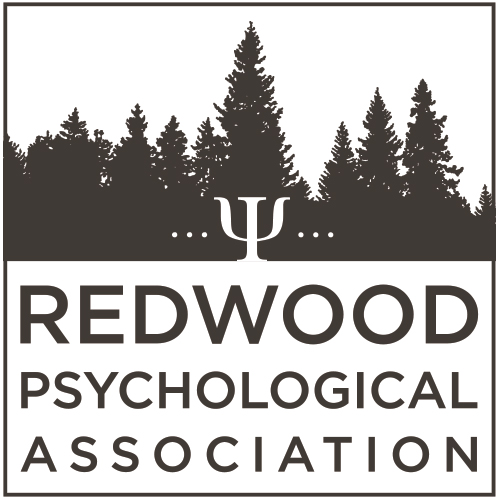Dear RPA community,
We the board of the Redwood Psychological Association are writing to declare our commitment to use our voice and platform to address the crisis in the US that centers on racial oppression and violence. We hope that we can stimulate and deepen conversations and reflection among RPA membership. We also recognize that change, not mere words, is what is needed, and wish to share plans for ACTION as the main purpose of this letter.
We also write as Board who the majority of members are white. We are beneficiaries of privileges that were not earned, and members of a racist culture that has been insufficiently challenged. We have been living in a balkanized culture that lets many white people live in ignorance of the profound suffering inflicted on Black and indigenous people of color (BiPOC). Smart phones and social media have helped expose the crisis lived by these communities, and have done so on an unprecedented scale.
Many statements are being made about standing in solidarity with BIPOC Americans and condemning the evils of racism and police violence. The media is also presenting voices that qualify this, by also condemning the destruction of property during recent protests. While we do not endorse destruction, we will not participate in conversations that temper statements of anti-racist condemnation by making qualifying statements about material things. Black Lives Matter. Because LIVES are what are at stake—the physical, emotional, and spiritual lives of tens of millions of Americans.
Our culture treats these lives as disposable, and that will not stand.
While we add our voices to this effort, we also will be pushing to ensure that we are taking meaningful action. We invite you to join us in this.
1. We wish to advocate for personal steps for white folks:
• Engaging in rigorous self-examination, recognizing that we were raised immersed in a deeply racist society, and as such none of us are immune from carrying racism within us.
• Realizing that the actions of those of us in dominant groups will sometimes, perhaps often, have racist impacts, and that we are responsible for working to better recognize these impacts and take steps to remedy the situation.
• Embracing the fact that those of us with white privilege have an obligation to use our unearned power to amplify the voices of others who are being silenced.
• Appreciating that unlearning racism is a life-long process that needs to start or be heightened now.
• Engaging in self -assessment and self-education. Transformation takes hard work, work that may be messy and difficult. It is premised on a core change in attitude, and that is in large part an attitude of listening and learning.
• Some of the tools that have been endorsed as helpful come from within our field. For instance, the Implicit Association Test shows the stereotypes that are carried around race, gender, sexual orientation, gender identity, etc.: https://implicit.harvard.edu/implicit/
• Explore a wide array of sources, including books, articles, lectures and artforms that educate on racism and how to mitigate its impact (links below). F or those of us with white privilege, it is incumbent on us to learn about and recognize and engage the historical and ongoing power imbalances. This should be done with due humility and responsibility, with the understanding that this is our personal work and not the responsibility of others, especially people of color.
2. In recent decades, a portion of non-BiPOC folks have adopted anti-racist attitudes on the surface, but in recent years have come to recognize that these attitudes reside within nonetheless. Action is needed to be an anti-racist ally, and to unlearn internalized racism. Suggestions to facilitate growth in this area will be addressed below.
3. We strive to use our professional status to promote institutional change. The following are some of the policies we hope you will join us in endorsing:
• Removal of mental health calls from the purview of police, instead relegating them to mental health professionals with backup only if absolutely necessary.
• Screening out police candidates who endorse racist belief systems.
• Overhauling police training programs to address racism and implicit bias through robust, scenario-based training that effectively corrects for unconscious bias.
• Putting pressure on local governing structures to de-militarize the police as well as increasing supportive resources in the community, especially for communities of color.
• Supporting effective civilian oversight models of policing as an essential component of every law enforcement agency.
• Training in psychology programs that address internalized racism and how to unlearn it, racial trauma, and an increased emphasis on models that teach the formation of healthy racial identity formation.
• Shifting assets, as private individuals, into corporations that pledge equity in pay for BiPOC. https://tinyurl.com/yaly564h
4. Organizationally, some of the steps we are taking to improve cultural competence and responsibility include:
• Obtaining training on white privilege, and identifying and addressing bias within ourselves and our organization.
• If they are interested in providing it, soliciting feedback from current and past RPA members who are people of color regarding experiences they have had in our organization, with an eye to making the organization more hospitable for all members.
• Producing a report to share with membership based on the above steps, addressing areas of concern and outlining steps to be taken.
• Making a donation from our treasury to one of many racial justice organizations that are worthy of support.
• Recognizing that white members may feel most comfortable working on unlearning racism in a white-only group, we require that any RPA-based initiative be open to all, should any members of color express interest in participating.
Education and Political Engagement Resources
Support BLM
CPA-Recommended Anti-Racism Action Steps and Informational Links
